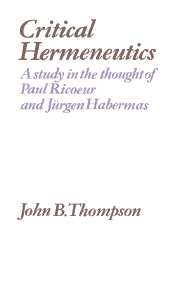Summary
The following study is concerned with the philosophy of social science. This sphere of philosophical inquiry remains an arena of deep-rooted dispute. Since the middle of the nineteenth century, many authors have argued that the methods of the social sciences are identical in essential respects with those of the natural sciences. The latter disciplines provide, by virtue of their very success, an exemplar of what all knowledge should be: empirically grounded, universally binding, value-free. However, during the same period, many writers have rejected this view, maintaining that there is a radical discontinuity between the natural and the social domain. For the social world consists of speaking and acting subjects who constantly make sense of themselves and others, and whose meaningful and wilful activities cannot be comprehended by the methods of the natural sciences. The study of the social world requires, these writers contend, a fundamentally different approach.
The two opposing positions are reflected in the recent philosophical literature of the Anglo-Saxon world. In the 1940s and 50s, authors such as Hempel and Nagel sought to analyse the methods of the humanistic disciplines in a manner which concurred with the positivistic programme of a unified science. There has since been a strong reaction to this earlier aim, a reaction propelled by the work of the later Wittgenstein, Austin and other ‘ordinary language philosophers’. Writers such as Peters, Winch and Louch have called for an account of social science which is no longer constrained by the positivistic model, and which recognises the unique and ineradicable meaningfulness of human phenomena.
- Type
- Chapter
- Information
- Critical HermeneuticsA Study in the Thought of Paul Ricoeur and Jürgen Habermas, pp. 1 - 6Publisher: Cambridge University PressPrint publication year: 1981
- 2
- Cited by

